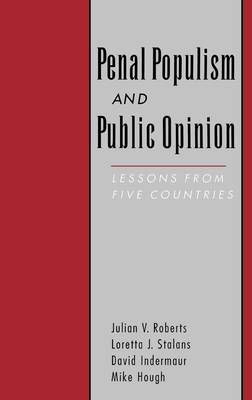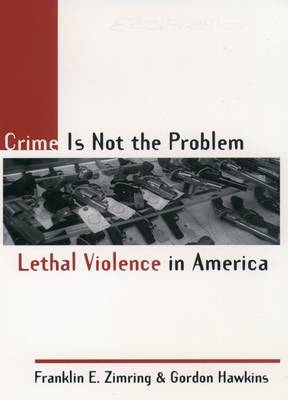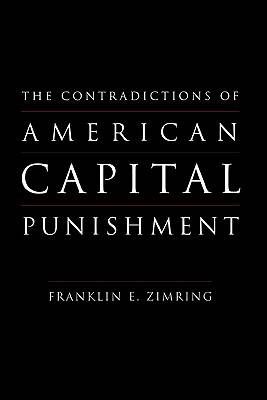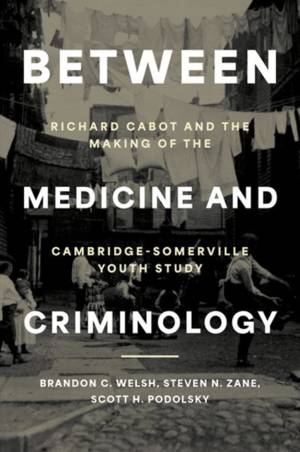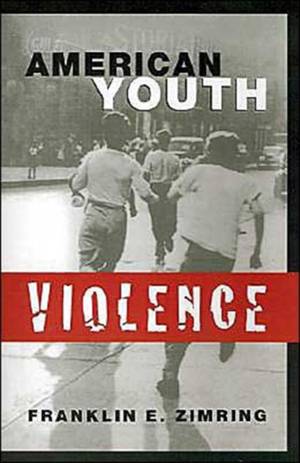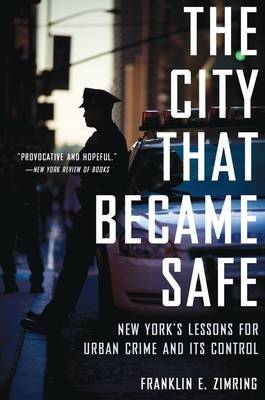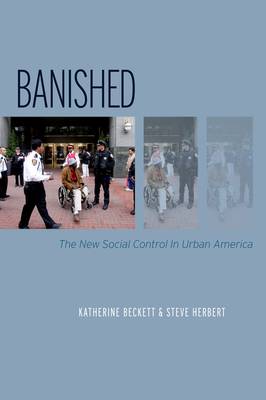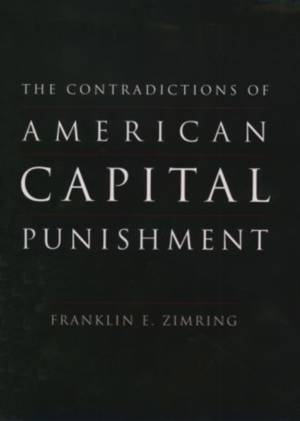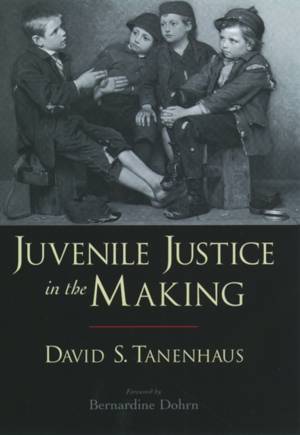
- Retrait gratuit dans votre magasin Club
- 7.000.000 titres dans notre catalogue
- Payer en toute sécurité
- Toujours un magasin près de chez vous
- Retrait gratuit dans votre magasin Club
- 7.000.0000 titres dans notre catalogue
- Payer en toute sécurité
- Toujours un magasin près de chez vous
-
Punishment, Communication, and Community
R A Duff
- Livre broché | Anglais | Studies in Crime and Public Policy
- The question "What can justify criminal punishment ?" becomes especially insistent at times, like our own, of penal crisis, when serious doubts are ra... Savoir plus
147,95 €Livraison 2 à 3 semaines147,95 €Livraison 2 à 3 semaines -
Living with Infamy
Pippa Holloway
- Livre relié | Anglais | Studies in Crime and Public Policy
- Living in Infamy examines the history of disfranchisement for criminal conviction in the United States during the late 19th and early 20th centuries. ... Savoir plus
117,95 €Livraison 2 à 3 semaines117,95 €Livraison 2 à 3 semaines -
Responding to Troubled Youth
Cheryl L Maxson, Malcolm W Klein
- Livre relié | Anglais | Studies in Crime and Public Policy
- This book provides an overview of the dominant philosophical approaches and practices in handling status offenders--those children who habitually resi... Savoir plus
81,45 €Livraison 2 à 3 semaines81,45 €Livraison 2 à 3 semaines -
Studies in Crime and Public Policy
Julian V Roberts, Loretta J Stalans, David Indermaur, Mike Hough
- Livre relié | Anglais | Studies in Crime and Public Policy
- Although criminal justice systems vary greatly around the world, one theme has emerged in all western jurisdictions in recent years: a rise in both th... Savoir plus
155,95 €Livraison 1 à 2 semaines155,95 €Livraison 1 à 2 semaines -
Hate Crimes
James B Jacobs, Kimberly Potter
- Livre broché | Anglais | Studies in Crime and Public Policy
- In the early 1980s, a new category of crime appeared in the criminal law lexicon. In response to concerted advocacy-group lobbying, Congress and many ... Savoir plus
111,95 €Livraison 2 à 3 semaines111,95 €Livraison 2 à 3 semaines -
Crime Is Not the Problem
Franklin E Zimring, Gordon Hawkins
- Livre broché | Anglais | Studies in Crime and Public Policy
- In Crime is Not the Problem , Franklin Zimring and Gordon Hawkins revolutionize the way we think about crime and violence--by forcing us to distinguis... Savoir plus
88,95 €Livraison 2 à 3 semaines88,95 €Livraison 2 à 3 semaines -
The Contradictions of American Capital Punishment
Franklin E Zimring
- Livre relié | Anglais | Studies in Crime and Public Policy
- Why does the United States continue to employ the death penalty when fifty other developed democracies have abolished it? Why does capital punishment ... Savoir plus
101,95 €Livraison 2 à 3 semaines101,95 €Livraison 2 à 3 semaines -
Sentencing Guidelines and Commissions
Julian V Roberts, Arie Freiberg, Rhys Hester
- Livre relié | Anglais | Studies in Crime and Public Policy
- Since the 1970s, sentencing in many countries has evolved from a system in which courts enjoyed wide discretion to one where courts must follow or at ... Savoir plus
72,95 €Livraison 2 à 3 semaines72,95 €Livraison 2 à 3 semaines -
Between Medicine and Criminology
Brandon C Welsh, Steven N Zane, Scott H Podolsky
- Livre relié | Anglais | Studies in Crime and Public Policy
- In 1935, Richard Cabot (1868-1939), a renowned physician and professor of clinical medicine and social ethics at Harvard University, founded the Cambr... Savoir plus
159,95 €Livraison 2 à 3 semaines159,95 €Livraison 2 à 3 semaines -
The Great American Crime Decline
Franklin E Zimring
- Livre broché | Anglais | Studies in Crime and Public Policy
- Many theories--from the routine to the bizarre--have been offered up to explain the crime decline of the 1990s. Was it record levels of imprisonment? ... Savoir plus
67,95 €Livraison 2 à 3 semaines67,95 €Livraison 2 à 3 semaines -
American Youth Violence
Franklin E Zimring
- Livre relié | Anglais | Studies in Crime and Public Policy
- This is the definitive examination of adolescent violence in the United States as both a social phenomenon and a policy problem. Franklin Zimring, one... Savoir plus
356,45 €Livraison 2 à 3 semaines356,45 €Livraison 2 à 3 semaines -
Making Crime Pay
Katherine Beckett
- Livre broché | Anglais | Studies in Crime and Public Policy
- Most Americans are not aware that the US prison population has tripled over the past two decades, nor that the US has the highest rate of incarceratio... Savoir plus
139,45 €Livraison 2 à 3 semaines139,45 €Livraison 2 à 3 semaines -
City That Became Safe
Franklin E Zimring
- Livre broché | Anglais | Studies in Crime and Public Policy
- The forty-percent drop in crime that occurred across the U.S. from 1991 to 2000 remains largely an unsolved mystery. Even more puzzling is the eighty-... Savoir plus
66,45 €Livraison 2 à 3 semaines66,45 €Livraison 2 à 3 semaines -
Banished
Katherine Beckett, Steve Herbert
- Livre broché | Anglais | Studies in Crime and Public Policy
- With urban poverty rising and affordable housing disappearing, the homeless and other "disorderly" people continue to occupy public space in many Amer... Savoir plus
66,45 €Livraison 2 à 3 semaines66,45 €Livraison 2 à 3 semaines -
The American Street Gang
Malcolm W Klein
- Livre broché | Anglais | Studies in Crime and Public Policy
- When the Soviet Union collapsed, the White House announced with great fanfare that 100 FBI counterintelligence agents would be reassigned. Their new t... Savoir plus
74,45 €Livraison 2 à 3 semaines74,45 €Livraison 2 à 3 semaines -
Changing the Guard
David H Bayley
- Livre relié | Anglais | Studies in Crime and Public Policy
- Every day the American government, the United Nations, and other international institutions send people into non-English speaking, war-torn, and often... Savoir plus
132,45 €Livraison 2 à 3 semaines132,45 €Livraison 2 à 3 semaines -
The Contradictions of American Capital Punishment
Franklin E Zimring
- Livre broché | Anglais | Studies in Crime and Public Policy
- Why does the United States continue to employ the death penalty when fifty other developed democracies have abolished it? Why does capital punishment ... Savoir plus
40,45 €Livraison 2 à 3 semaines40,45 €Livraison 2 à 3 semaines -
When Prisoners Come Home
Joan (Professor of Criminology, Law and Society, Professor of Cr
- Livre relié | Studies in Crime and Public Policy
- As the number of ex-convicts in America continues to grow, their systematic marginalization threatens the very society their imprisonment was meant to... Savoir plus
85,45 €Livraison 1 à 2 semaines85,45 €Livraison 1 à 2 semaines -
Next Frontier
David T Johnson, Franklin E Zimring
- Livre broché | Anglais | Studies in Crime and Public Policy
- Today, two-thirds of the world's nations have abolished the death penalty, either officially or in practice, due mainly to the campaign to end state e... Savoir plus
69,45 €Livraison 2 à 3 semaines69,45 €Livraison 2 à 3 semaines -
Politics, Punishment, and Populism
David James George He Windlesham, Lord Windlesham, Windlesham
- Livre relié | Anglais | Studies in Crime and Public Policy
- The Violent Crime Control and Law Enforcement Act of 1994 was arguably the most important legislative achievement of President Clinton's first term. I... Savoir plus
279,95 €Livraison 2 à 3 semaines279,95 €Livraison 2 à 3 semaines -
Studies in Crime and Public Policy
Barry C Feld
- Livre broché | Anglais | Studies in Crime and Public Policy
- Within the past three decades, social and legal changes have transformed the juvenile court from a nominally rehabilitative welfare agency into a seco... Savoir plus
111,95 €Livraison 2 à 3 semaines111,95 €Livraison 2 à 3 semaines -
Juvenile Justice in the Making
David Spinoza Tanenhaus
- Livre relié | Anglais | Studies in Crime and Public Policy
- "Tried as an adult." The phrase rings with increasing frequency through America's courtrooms. In Michigan, an 11-year-old is charged with first-degree... Savoir plus
169,45 €Livraison 2 à 3 semaines169,45 €Livraison 2 à 3 semaines -
The Toughest Beat
Joshua Page
- Livre broché | Anglais | Studies in Crime and Public Policy
- In America today, one in every hundred adults is behind bars. As our prison population has exploded, 'law and order' interest groups have also grown -... Savoir plus
77,45 €Livraison 2 à 3 semaines77,45 €Livraison 2 à 3 semaines -
Juvenile Justice in the Making
David S Tanenhaus
- Livre broché | Anglais | Studies in Crime and Public Policy
- In his engaging narrative history of the rise and workings of America's first juvenile court, David S. Tanenhaus explores the fundamental and enduring... Savoir plus
70,95 €Livraison 2 à 3 semaines70,95 €Livraison 2 à 3 semaines








